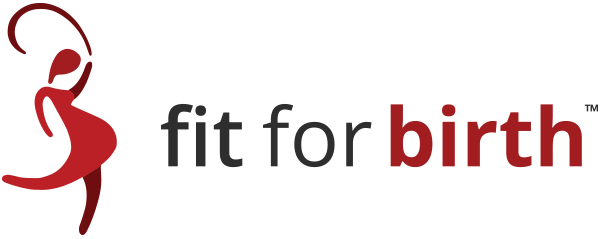Originally posted by James Goodlatte on Epoch Times http://www.theepochtimes.com/n3/blog/pregnant-dehydrated-moms-put-babies-at-risk/
During pregnancy, water may be most underutilized nutrient. After conception, water demands increase since the infant’s cells divide and mom’s blood volume increases. With thirst an unreliable indicator, symptoms of dehydration so vague, and drinks that may dehydrate, every pregnant woman needs to increase her fluid intake.
Kristen Montgomery, Ph.D., RN, writes in the Journal of Perinatal Education, “Pregnant and breastfeeding women should be encouraged to increase their intake of water and other fluids to meet their bodies’ needs … in order to support fetal circulation, amniotic fluid, and higher blood volume.”
Dehydration is a signal that water is unavailable for other body processes. For example, according to AmericanPregnancy.org, maternal dehydration is a cause of low amniotic fluid. The site says risks of having low amniotic fluid include “Compression of fetal organs resulting in birth defects, increased chance of miscarriage or stillbirth, intrauterine growth restriction (IUGR), preterm birth, and labor complications such as cord compression, meconium stained fluid, and cesarean delivery.”
In “Raising Baby Green,” Alan Greene, M.D., asks pregnant women to remember that their placenta is “providing approximately one cup of water each hour” just to replenish amniotic fluid in the womb. If mom doesn’t drink this much water, it will not magically appear for her growing baby.
The developing fetus places enormous demands for water onto the newly pregnant mom. The late F. Batmanghelidj, M.D., (Dr. B), was an internationally renowned researcher, author, and advocate of the natural healing power of water. In his books, “Your Body’s Many Cries for Water” and “Water for Health, for Healing, for Life,” Dr. B tells pregnant moms to increase their intake of water when conceiving, if not sooner. He explains, “Every time a cell gives rise to a daughter cell, 75 percent or more of its volume has to be filled with water. In short, growth depends on the availability of water.
“During the intrauterine stage of cell expansion, water for cell growth of the child has to be provided by the mother,” Dr. B said. He added that most women don’t adjust their water intake until the third month of pregnancy, well after dehydration has set in.
Worse, most women begin pregnancy already dehydrated. One estimate is that 75 percent of the population is suffering from chronic dehydration. Virtually all are completely unaware of their water deficiency. Symptoms of dehydration, according to the Mayo Clinic, include tiredness, irritability, and headache. Most pregnant moms simply do not think of drinking water when they have these symptoms.
Experts say thirst is not a reliable indicator. By the time one feels thirsty, some systems of the body have already been denied water. Dr. B calls it a chronic form of “drought management. Further confusion lies in the idea that when we’re thirsty, we can substitute tea, coffee, or alcohol-containing beverages. This is a common error,” he said.
Pregnant women can now add morning sickness to the list of dehydration symptoms. Dr. B writes, “Morning sickness is a thirst signal of both the fetus and the mother. It is the very first sign of dehydration of the mother and fetus together.”
Puffy eyes, swollen ankles, and other abnormal accumulations of fluid (edema) are signs of dehydration during pregnancy, says Dr. B. He is not the only expert recommending pregnant women to drink water in order to teach their bodies that it’s OK to let some out. As a complication to the dehydration-caused fluid retention, Dr. B says it causes hypertension, which complicates 6 percent –10 percent of all pregnancies.
Paul Chek, HHP says, “Processed fruit juices are definitely no substitute for water.” Pasteurization, loss of nutrients, and cheap synthetic-fortified nutrients render juices more toxic than nutritious, he says in the audio program, “You Are What You Eat.”
Chek tells listeners that drinking juice actually requires a person to drink additional water in order to digest the juice. “So when you drink a glass of juice thinking that you’re hydrating yourself, you’re really creating a period of dehydration where the body has to pull water from the working tissues,” says Chek. Only freshly juiced vegetables and fruits contain enough nutrition to warrant the loss of water. To avoid loss of nutrients, it’s best to drink fruit juices and vegetable juices within one minute of juicing.
Chek recommends drinking pure filtered or glass-bottled artesian well water. Avoiding plastics is increasingly being recognized as important for a pregnant mom. Dr. B recommends passing clear urine as a sign that one is drinking enough water. Both recommend adding a pinch of unprocessed sea salt to water to ensure that the water enters the cells and reacts properly.
Would you like to learn more about optimal nutrition during pregnancy? Empower yourself with Fit For Birth’s Prenatal Wellness Course. Not only will you be inspired to maximize your health during this critical time period through nutrition, but you’ll be coached on the 5 Fit For Birth foundations to having a healthy pregnancy: nutrition, exercise, breathing, thoughts, and lifestyle.
OR if you’re a wellness professional and want to feel empowered to work with women at any stage of their pregnancy or postpartum journey, check out our Pre & Postnatal Corrective Exercise Specialist Course and our Pre & Postnatal Diastasis & Core Consultant Course.
Sign up here to find out how to reduce toxins during pregnancy!
James Goodlatte is a Holistic Health Coach and founder of Fit For Birth. His passion is to heal families by inspiring the use of natural methods and by building a team of fitness professionals to reduce infertility, avoid mechanized childbirth, and lower chronic disease in our infants. James also provides continuing education courses to birth and fitness professionals.

